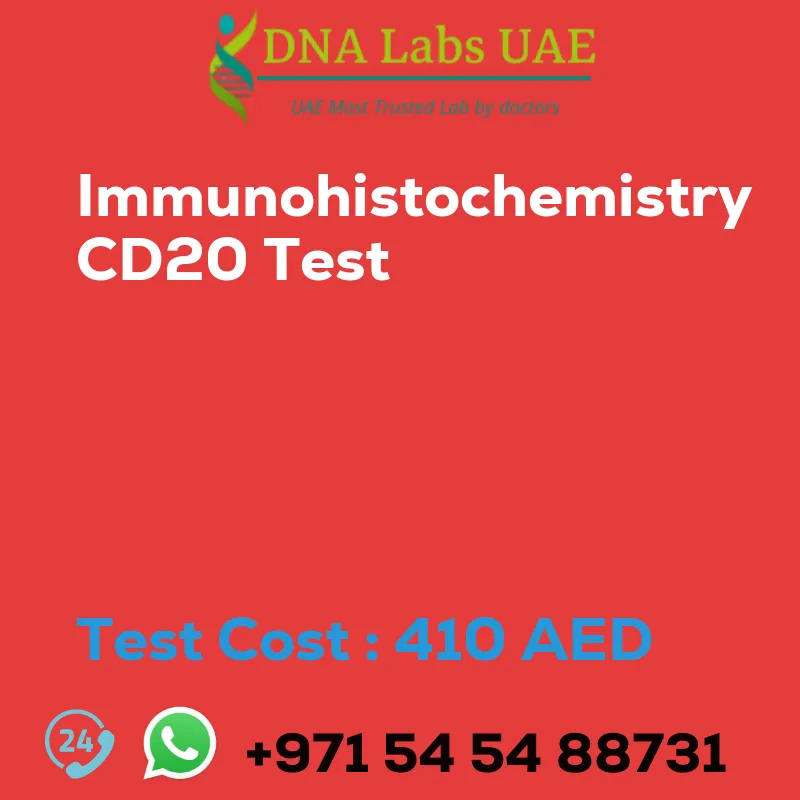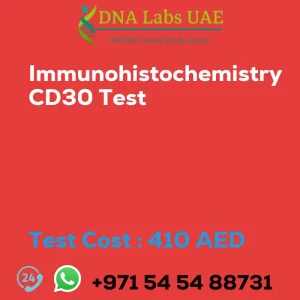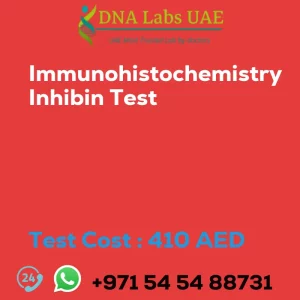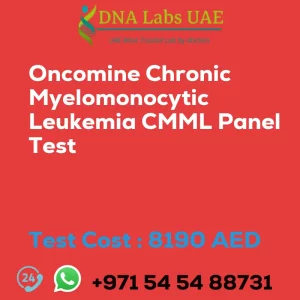IMMUNOHISTOCHEMISTRY CD20 Test
Test Name: IMMUNOHISTOCHEMISTRY CD20 Test
Components: CD20 protein
Price: 410.0 AED
Sample Condition: Submit tumor tissue in 10% Formal-saline OR Formalin fixed paraffin embedded block. Ship at room temperature. Provide a copy of the Histopathology report, Site of biopsy and Clinical history.
Report Delivery: Sample Daily by 6 pm; Report Block: 5 days Tissue Biopsy: 5 days Tissue large complex: 7 days
Method: Immunohistochemistry
Test Type: Cancer
Doctor: Oncologist, Pathologist
Test Department: DNA Labs UAE
Pre Test Information: Provide a copy of the Histopathology report, Site of biopsy and Clinical history.
Test Details
The immunohistochemistry CD20 test is a diagnostic test used to identify the presence of the CD20 protein on the surface of certain cells, particularly B cells. CD20 is a protein found on the surface of B lymphocytes and plays a role in the regulation of B cell activation and differentiation.
The test involves staining tissue samples, typically obtained through a biopsy or surgical resection, with specific antibodies that bind to the CD20 protein. These antibodies are labeled with a marker, such as a fluorescent dye or an enzyme, which allows for visualization and detection of the CD20 protein.
The immunohistochemistry CD20 test is commonly used in the diagnosis and classification of various types of lymphomas, such as non-Hodgkin lymphoma and some types of leukemia. It can also be used to monitor the response to treatment and assess the prognosis of these conditions.
The results of the test are typically reported as the percentage of cells that are positive for CD20 staining. A high percentage of CD20-positive cells indicates a higher likelihood of a B cell lymphoma or leukemia, while a low percentage may suggest a different type of lymphoma or leukemia.
It is important to note that the immunohistochemistry CD20 test is just one component of a comprehensive diagnostic workup and should be interpreted in conjunction with other clinical and laboratory findings. Additionally, false-negative or false-positive results can occur, so confirmatory testing may be necessary in some cases.
| Test Name | IMMUNOHISTOCHEMISTRY CD20 Test |
|---|---|
| Components | |
| Price | 410.0 AED |
| Sample Condition | Submit tumor tissue in 10% Formal-saline OR Formalin fixed paraffin embedded block. Ship at room temperature. Provide a copy of the Histopathology report, Site of biopsy and Clinical history. |
| Report Delivery | Sample Daily by 6 pm; Report Block: 5 days Tissue Biopsy: 5 days Tissue large complex : 7 days |
| Method | Immunohistochemistry |
| Test type | Cancer |
| Doctor | Oncologist, Pathologist |
| Test Department: | |
| Pre Test Information | Provide a copy of the Histopathology report, Site of biopsy and Clinical history. |
| Test Details |
The immunohistochemistry CD20 test is a diagnostic test used to identify the presence of the CD20 protein on the surface of certain cells, particularly B cells. CD20 is a protein found on the surface of B lymphocytes and plays a role in the regulation of B cell activation and differentiation. The test involves staining tissue samples, typically obtained through a biopsy or surgical resection, with specific antibodies that bind to the CD20 protein. These antibodies are labeled with a marker, such as a fluorescent dye or an enzyme, which allows for visualization and detection of the CD20 protein. The immunohistochemistry CD20 test is commonly used in the diagnosis and classification of various types of lymphomas, such as non-Hodgkin lymphoma and some types of leukemia. It can also be used to monitor the response to treatment and assess the prognosis of these conditions. The results of the test are typically reported as the percentage of cells that are positive for CD20 staining. A high percentage of CD20-positive cells indicates a higher likelihood of a B cell lymphoma or leukemia, while a low percentage may suggest a different type of lymphoma or leukemia. It is important to note that the immunohistochemistry CD20 test is just one component of a comprehensive diagnostic workup and should be interpreted in conjunction with other clinical and laboratory findings. Additionally, false-negative or false-positive results can occur, so confirmatory testing may be necessary in some cases. |








